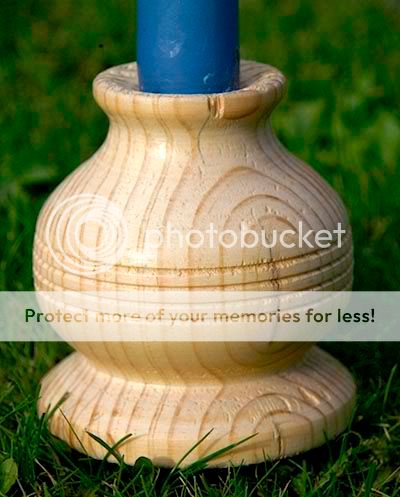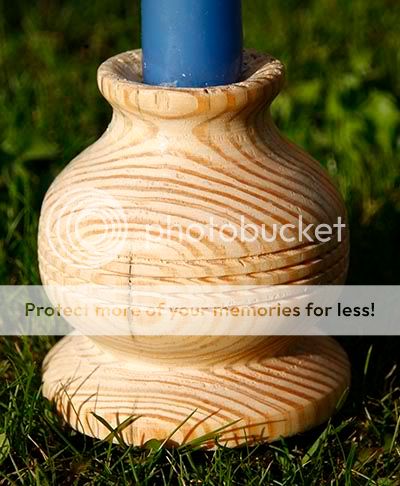Gitface
Established Member
Hi All
Here is my second effort. This was from an old fence post and was going to be an attempt at a weed pot, but I had to discard about an inch of wood from the top (should have cut it off first then cut my lenght that I wanted).
This first picture shows it with a candle for an idea of size.



This was mounted on a face plate and roughed out with the gouge, then scraped to finish off. I sanded it with 120 grit (must get more sandpaper) and applied two coats of beeswax and buffed them with a paper towel.
There was a bit of tear out, but I think this is from the wood as the post could well be 10 years old, Also I think I better get round to setting up the grinder to sharpen my chisels.
Mark...........
Here is my second effort. This was from an old fence post and was going to be an attempt at a weed pot, but I had to discard about an inch of wood from the top (should have cut it off first then cut my lenght that I wanted).
This first picture shows it with a candle for an idea of size.



This was mounted on a face plate and roughed out with the gouge, then scraped to finish off. I sanded it with 120 grit (must get more sandpaper) and applied two coats of beeswax and buffed them with a paper towel.
There was a bit of tear out, but I think this is from the wood as the post could well be 10 years old, Also I think I better get round to setting up the grinder to sharpen my chisels.
Mark...........


































